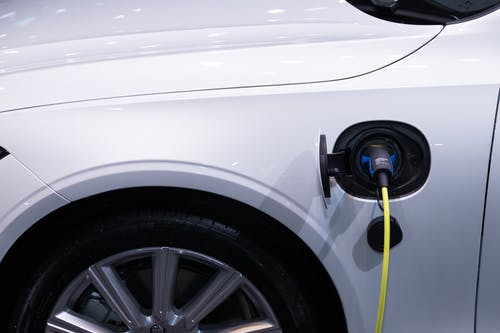As the market shifts ever-further away from cars reliant on fossil fuels, people are looking a lot more closely at the increasing variety of alternatives now available on the market. But with so many choices available, it can be hard for the average consumer to understand exactly what they’re getting into when purchasing an electric or hybrid vehicle. So what exactly do these terms mean? And what are the benefits of either?
What Is an Electric Car?
An electric vehicle, or EV, is a vehicle that runs fully on electricity, via an on-board battery pack. As such, EVs are zero-emissions, powered only via plugging into mains electricity. Up until 2010, electric cars were rare, and unpopular – consumers were often put off by their limited range and lack of power in comparison to their petrol-powered counterparts. But, as electric vehicle development led to leaps forward in the technology, major car manufacturers began to notice – and nowadays, manufacturers such as Vauxhall are offering fully-electric alternatives to their biggest sellers. And, with battery design improving exponentially year-on-year, fully-electric vehicles will only become more ubiquitous.
What Is a Hybrid Car?
A hybrid-electric vehicle, or HEV, is a vehicle powered by both fossil fuels and electricity. Petrol is the main source of power with most HEVs, although alternatives exist which favour electricity. In traditional HEVs, the battery pack is charged primarily through an alternator, though energy converted through braking can also provide charge. The battery powers the car at lower speeds, with the combustion engine taking over for more energy-intensive parts of your journey.
Weighing Up the Benefits
Each type of car has its own benefits to the user, depending on certain demographic needs and the car’s typical use. The electric car’s chief benefit is that it uses no fuel, significantly decreasing the carbon footprint of the user. Hybrid vehicles, however, use petrol as a primary fuel source, which in turn charges the onboard battery. While this does not do much for environmental purposes, there is still an effect – and a different kind of benefit for HEV users. The battery, being charged from an alternator and regenerative braking/traction, prolongs the mileage of the vehicle, reducing the amount of fuel required for a journey, and hence the cost of travel. Also, there is no risk of the battery running out and requiring a plug-in recharge.
Electric cars, owing to the lack of combustion engine, produce no emissions and are also silent – reducing noise pollution as well as air pollution whether in built-up areas or the countryside. This may be a positive for quality-of-life purposes, and could result in wildlife returning to areas abandoned due to noise and poor air quality. The downsides include the decreased diligence of wildlife in the face of quiet vehicles, and issues presented by the blind community in safely traversing built-up areas.

